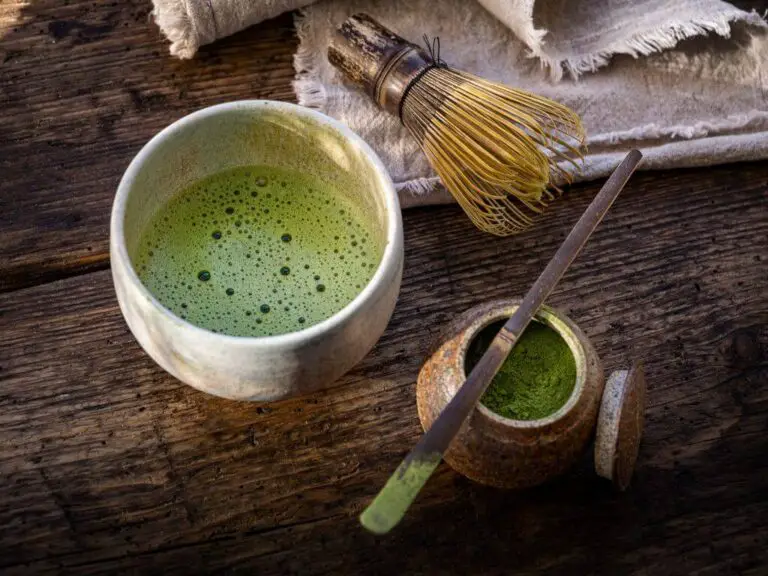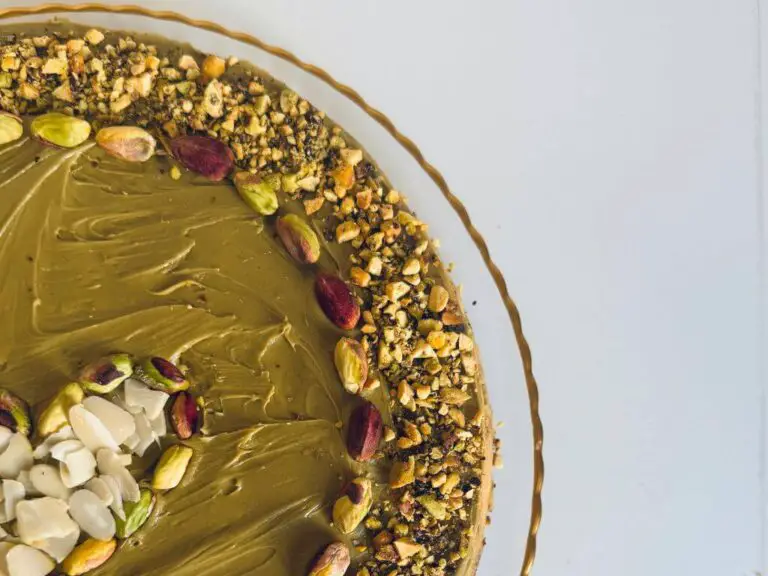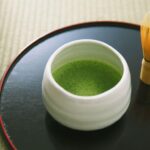Is Matcha Latte Good For You? The Honest Truth (+ Nutrition Facts)
If you’ve been scrolling through cafés or Instagram feeds lately, you’ve probably noticed a vibrant green drink popping up everywhere – the matcha latte. But with all the hype, you might be wondering: “Is matcha latte good for you?” ☕💚
People are swapping their regular coffee for this earthy, frothy drink not just for its taste, but also for its health benefits. From antioxidants to a gentle energy boost, matcha offers more than just a pretty color. In this article, we’ll break down what a matcha latte is, its health perks, potential risks, how to make it healthy at home, and how it stacks up against coffee. By the end, you’ll have all the answers to enjoy your green latte mindfully! 🌿✨
What Is a Matcha Latte?
Before we dive into the health benefits, let’s get to know what makes a matcha latte special.
Matcha vs Regular Green Tea
- Matcha: Finely ground powder made from shade-grown green tea leaves. You drink the whole leaf, which gives you a bigger dose of nutrients.
- Regular green tea: Leaves are steeped in water and then discarded, so you get fewer nutrients.
Ingredients of a Matcha Latte
- Matcha powder (1 tsp for one serving)
- Milk (dairy or plant-based like almond, oat, or soy)
- Optional sweetener (honey, maple syrup, or stevia)
Milk Options:
- Dairy: Creamy, traditional taste
- Almond: Light, nutty flavor
- Oat: Naturally sweet and frothy
- Soy: Protein-rich alternative
Quick Comparison: Matcha Latte vs Regular Latte
| Feature | Matcha Latte 💚 | Regular Latte ☕ |
|---|---|---|
| Caffeine Level | Moderate | High |
| Antioxidants | High | Low |
| Calories (unsweetened) | Low | Medium-High |
As you can see, a matcha latte isn’t just visually appealing—it’s packed with health perks that a regular latte doesn’t always offer!
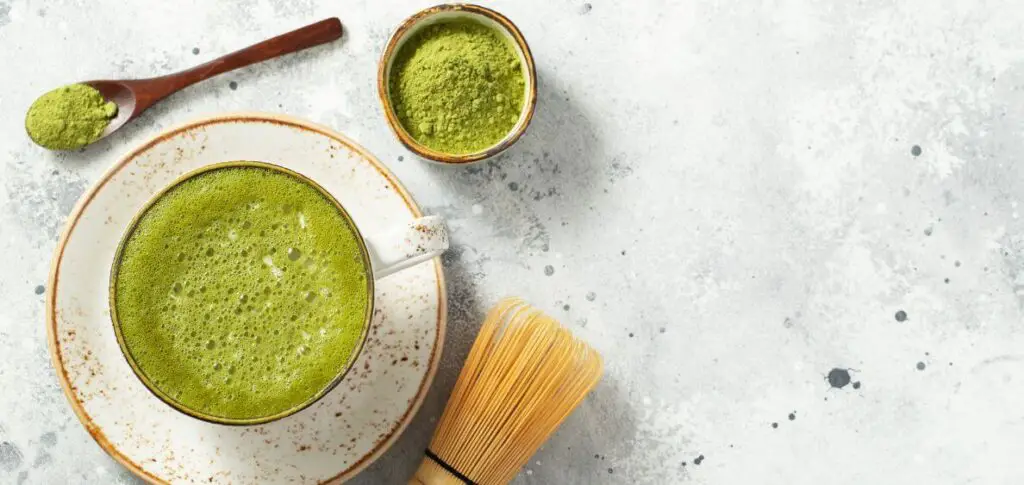
Health Benefits of Matcha Latte
Wondering why so many people are swapping their morning coffee for a matcha latte? Here’s the scoop on its top health benefits. 💚✨
1. Rich in Antioxidants ✅
Matcha is loaded with catechins, a type of antioxidant that helps fight free radicals in your body. One cup of matcha latte can give you 3–5 times more antioxidants than regular green tea. These antioxidants may support cell health, reduce inflammation, and slow aging.
2. Boosts Metabolism & Supports Weight Loss ⚡
Matcha contains EGCG (epigallocatechin gallate) which can slightly increase calorie burning and fat oxidation. Pair it with a balanced diet, and it may support your weight management goals.
3. Enhances Calmness & Focus 🧘♂️
Unlike coffee, matcha provides a calm, alert energy thanks to L-theanine, an amino acid that promotes relaxation without drowsiness. This makes it perfect for work, study, or meditation.
4. Supports Heart Health ❤️
Studies suggest that drinking green tea, especially in concentrated forms like matcha, can help lower cholesterol and support healthy blood pressure.
5. Immune System Boost 💪
Matcha’s antioxidants, vitamins, and minerals may strengthen immunity and help your body fight off infections more effectively.
Quick Benefits Summary:
- ✅ Antioxidant powerhouse
- ⚡ Boosts metabolism & supports weight loss
- 🧘♀️ Promotes calmness and focus
- ❤️ Supports heart health
- 💪 Enhances immunity
Potential Risks or Downsides of Matcha Latte ⚠️
While matcha lattes are healthy for many, it’s important to know the possible risks so you can enjoy it safely.
1. High Caffeine for Sensitive Individuals ☕
Even though matcha has less caffeine than coffee, 1 tsp of matcha powder contains around 70 mg of caffeine. For those sensitive to caffeine, this may cause:
- Jitters
- Trouble sleeping
- Rapid heartbeat
2. Added Sugar in Store-Bought Versions 🍭
Many café lattes are loaded with syrups and sweeteners, which can negate the health benefits. Too much sugar may lead to:
- Weight gain
- Blood sugar spikes
- Reduced antioxidant effectiveness
3. Possible Interactions with Medications 💊
Matcha may interact with certain medications, especially blood thinners. If you’re on medication, consult your doctor before making it a daily habit.
Quick Benefits vs Risks Table
| Aspect | Benefits 🌟 | Risks ⚠️ |
|---|---|---|
| Caffeine | Gentle energy | May affect sensitive individuals |
| Antioxidants | High, supports immunity & heart | None significant |
| Sugar | Low if homemade | Can be high in store-bought versions |
| Weight Management | Supports metabolism | Excess sugar reduces benefit |
By knowing the risks, you can enjoy your matcha latte safely while still reaping all its goodness! 💚
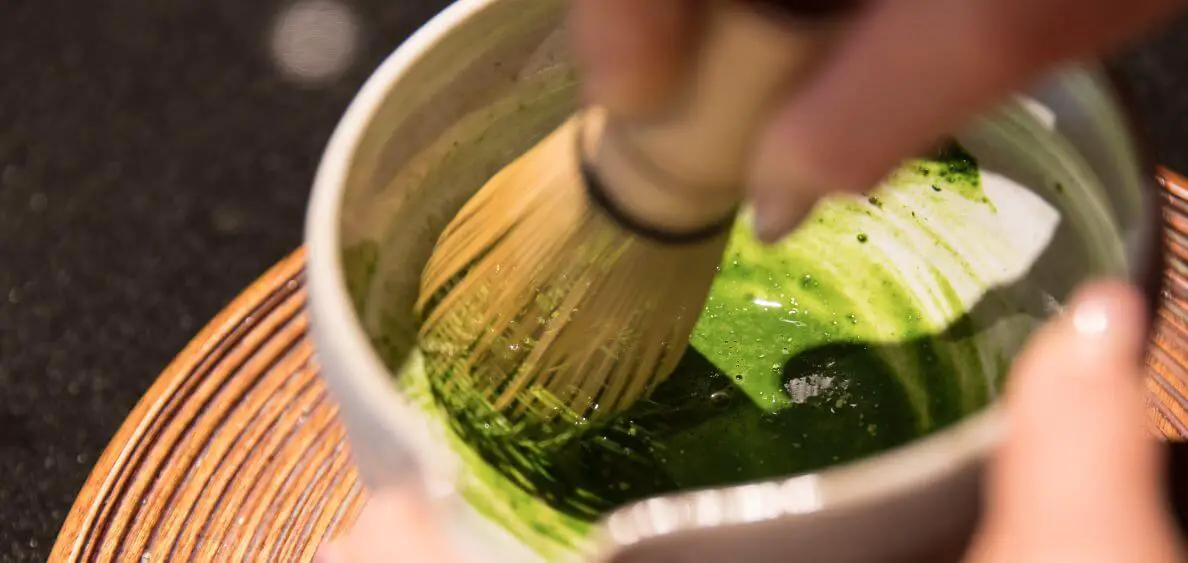
How to Make a Healthy Matcha Latte at Home 🏡💚
Making your own matcha latte at home is easy, fun, and way healthier than most store-bought versions. You get to control the sugar, milk, and matcha quality, ensuring maximum benefits.
Step-by-Step Guide:
- Sift the matcha powder – 1 tsp for 1 cup of latte to avoid clumps.
- Heat your milk – 1 cup of dairy or plant-based milk (almond, oat, soy) until warm but not boiling.
- Whisk matcha – Use a bamboo whisk or a small frother to mix matcha with a little hot water until frothy.
- Combine – Pour warm milk into the matcha and whisk lightly.
- Sweeten (optional) – Add 1 tsp of honey, maple syrup, or your preferred natural sweetener.
- Optional superfood add-ons – Cinnamon, turmeric, or vanilla for extra flavor and antioxidants. 🌿✨
Mini Recipe Table:
| Ingredient | Amount | Tip |
|---|---|---|
| Matcha Powder | 1 tsp | Organic for best quality |
| Milk (any type) | 1 cup | Almond or oat preferred |
| Sweetener | Optional 1 tsp | Honey or maple syrup |
✅ Tips for a Healthier Matcha Latte:
- Use unsweetened plant-based milk for fewer calories.
- Avoid flavored syrups with added sugar.
- Whisk well for a creamy, frothy texture.
- Drink 1–2 cups per day for optimal benefits.
Making your own matcha latte lets you enjoy it deliciously and healthily while keeping sugar and calories in check.
Matcha Latte vs Other Beverages ☕💚
Curious how a matcha latte stacks up against coffee, regular lattes, and green tea? Let’s break it down so you can make an informed choice.
Comparison Table: Matcha Latte vs Coffee vs Regular Latte vs Green Tea
| Feature | Matcha Latte 💚 | Coffee ☕ | Regular Latte 🥛 | Green Tea 🍵 |
|---|---|---|---|---|
| Caffeine Level | Moderate | High | High | Low |
| Antioxidants | High | Moderate | Low | Moderate |
| Calming Effect | Yes, L-theanine | No | No | Yes |
| Calories (unsweetened) | Low | Very low | Medium-High | Very low |
| Weight Management Support | ✅ | ⚠️ (may boost metabolism) | ⚠️ (depends on sugar) | ✅ |
Key Takeaways:
- Energy: Matcha provides a gentle, sustained boost without jitters, unlike coffee. ⚡
- Health: High antioxidants make matcha superior to regular lattes for heart and immune health. ❤️
- Calories: Homemade matcha lattes are lower in calories than many flavored lattes.
- Relaxation: L-theanine in matcha promotes calm focus, unlike coffee which can sometimes cause anxiety. 🧘♀️
So if you’re looking for a balanced energy boost, antioxidants, and a calming effect, a matcha latte is a great choice.
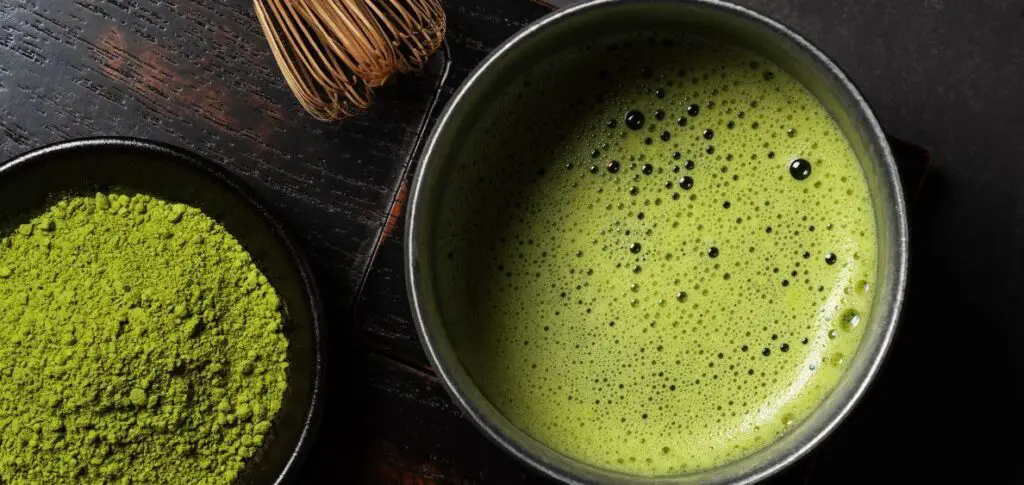
Tips to Maximize Health Benefits 🌿✨
Want to get the most out of your matcha latte? Here are some easy tips to enjoy it deliciously and healthily.
1. Choose High-Quality Matcha 🍵
- Go for ceremonial grade matcha for maximum antioxidants and smooth flavor.
- Avoid low-quality matcha with fillers or artificial colors.
2. Avoid Excess Sugar 🍯
- Sweeten lightly with honey, maple syrup, or stevia if needed.
- Skip flavored syrups that can negate health benefits.
3. Pick Healthy Milk Options 🥛
- Plant-based milk like almond, oat, or soy keeps calories low.
- Dairy is fine in moderation but choose unsweetened versions.
4. Drink in Moderation ☕
- 1–2 cups per day is ideal to enjoy health benefits without overdoing caffeine.
5. Enjoy Mindfully 🧘♀️
- Sip slowly and focus on the taste and aroma.
- Mindful drinking can enhance relaxation and mental clarity.
✅ Extra Tip: Combine with optional superfoods like cinnamon or turmeric for an extra antioxidant boost!
By following these tips, your matcha latte can be a healthy daily ritual that energizes your body and calms your mind. 💚
Conclusion 🎉💚
So, is matcha latte good for you? The answer is yes – when enjoyed mindfully!
Here’s a quick recap:
- Benefits: High in antioxidants ✅, supports metabolism ⚡, promotes calm focus 🧘♂️, and boosts heart and immune health ❤️.
- Risks: Moderate caffeine ⚠️, added sugar in store-bought lattes 🍭, possible interactions with medications 💊.
Friendly Advice:
- Make it at home to control sugar and quality.
- Drink 1–2 cups per day to maximize health benefits.
- Enjoy slowly and mindfully for a calming, energizing experience.
FAQ Section: Matcha Latte Questions Answered ❓💚
1. How much matcha latte is safe per day?
- 1–2 cups per day is ideal for most adults. This provides antioxidants and gentle energy without excessive caffeine. ⚡
2. Can matcha latte help with weight loss?
- Yes! The EGCG in matcha can slightly boost metabolism and fat burning, especially when paired with a balanced diet and exercise. 🏃♀️
3. Is matcha latte better than coffee?
- It depends on your needs. Matcha offers calm energy, antioxidants, and heart benefits, while coffee gives a quick energy spike. For sustained focus and relaxation, matcha is often the better choice. 🧘♂️
4. Can I drink matcha latte at night?
- If you’re sensitive to caffeine, it’s best to avoid it late in the evening. Otherwise, a small cup 4–6 hours before bedtime is usually fine. 🌙
5. Which milk is best for matcha latte?
- Unsweetened almond, oat, or soy milk is best for low-calorie, creamy lattes. Dairy works too, but choose unsweetened varieties. 🥛

